 I’m in a weird position here, in that I’ve never played an episodic game before. The chapters are not terribly long, but they’re long enough that the full game seems like it will turn out to be incredibly long, plus also I’m so bad at reviewing partial games anyway. Not to say I expect to stop playing Life Is Strange! But things happen sometimes, and the part where I opted to take a break between chapters is, if not telling, at least cautionary.
I’m in a weird position here, in that I’ve never played an episodic game before. The chapters are not terribly long, but they’re long enough that the full game seems like it will turn out to be incredibly long, plus also I’m so bad at reviewing partial games anyway. Not to say I expect to stop playing Life Is Strange! But things happen sometimes, and the part where I opted to take a break between chapters is, if not telling, at least cautionary.
So, anyway, this is one of the new wave of exploratory, talky, thoughtful games that are mostly devoid of shooting wave after wave of nameless enemies who are (if not alien invaders or zombies) nevertheless human, thereby raising questions of morality. You may recall that I played Gone Home, about an older sister arriving unexpectedly from college to find that her entire family had been upturned in the meantime, via exploration of the empty house. Life Is Strange’s first chapter, Chrysalis, is certainly more “interactive character” / less “detached observer” than that was, which is a good thing. It was a lot easier to get immersed in Max’s problems, because she actually had a personality and a physical form, instead of being a set of silent eyeballs floating through a silent house. (Irony: I did like Gone Home, but its flaws are apparent now that I’ve played literally any other game in the same new genre of play.)
Here’s the deal as gleaned in the first five minutes of play. Max Caulfield is a new transfer student to a prestigious high school academy on the Oregon coast, returning to her hometown from Seattle after 3 years away because it is the best place to pursue her love of photography. She’s an out of place loner who has not reached out to her former best friend because of a fear of rejection, she’s learning to navigate the many cliques (especially the Vortex Club, for hyper-popular people) in her new environment, she’s barely aware of the geek who is desperately hitting on her at every turn, she keeps avoiding a submission to a photography contest that the teacher she idolizes is pressuring her to enter (also fear of rejection), her earbuds are full of the latest alternative music you’ve never heard of, she finds herself thinking a lot about the preponderance of flyers about a girl who went missing last spring… it’s a high school story. Cool. Been here, done this.
Then, by way of a massive spoiler in the 5-10 minute range, it takes a sharp turn into inexplicable sci-fi territory, and the game is off to the races. I’ll probably talk more about how in future chapters when it would be less of a spoiler than it is in this one, but I am both impressed and a little dismayed by what is a paradigm-shift to RPG elements of games (if not to strategy elements; I’d link what game I’m thinking of, but the same spoiler problem applies) combined with a healthy middle finger raised straight at me. But[1] in a good way!
Long story short: The Steam Machine was a good purchase, if the new genre are all as good as the two I’ve played so far.
[1] Apparently, since I loved it and want to play more.
 The Shallows is a straight up woman vs. nature tension movie. One sentence premise that fills an hour and a half of breath-holding and making the same motions the actor is making, as thought it would help her. Remember Frozen? The one that’s not a Disney movie, I mean, where the kids are out skiing and they get trapped on the ski lift at the end of the weekend and have to figure out how to survive the weather or the fall with no help coming? This is like that more or less, but with surfing instead of skiing and with, er, different challenges.
The Shallows is a straight up woman vs. nature tension movie. One sentence premise that fills an hour and a half of breath-holding and making the same motions the actor is making, as thought it would help her. Remember Frozen? The one that’s not a Disney movie, I mean, where the kids are out skiing and they get trapped on the ski lift at the end of the weekend and have to figure out how to survive the weather or the fall with no help coming? This is like that more or less, but with surfing instead of skiing and with, er, different challenges.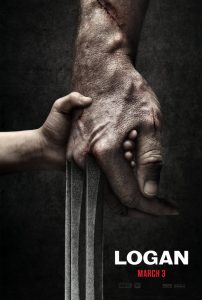 So, another X-Men continuity movie[1].
So, another X-Men continuity movie[1]. 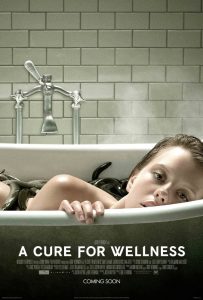 A thing I’ve learned from movie-watching is to not go on vacation in Europe. I mean, remember
A thing I’ve learned from movie-watching is to not go on vacation in Europe. I mean, remember 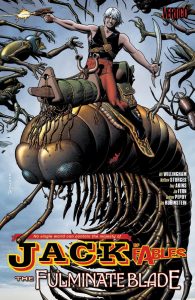 So, this is the other Jack of Fables. After
So, this is the other Jack of Fables. After 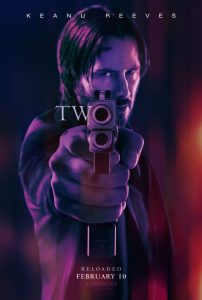 I don’t remember thinking
I don’t remember thinking 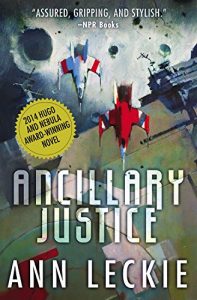 Rumor has it,
Rumor has it, 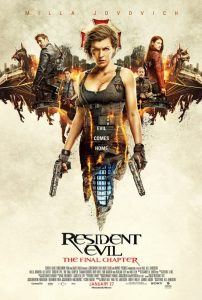 I’ve reviewed, let’s see, four of these movies before. All of them except the first one, which predates my presence here by a couple years. And I’ve mostly liked all of them! (At least, as far as I can remember. I didn’t actually check any of the reviews, but that time when I rewatched the whole series in advance of the most recent movie but this one is pretty fresh in my mind too. So, I liked them is what we’re saying. If you have time to prove me wrong, feel free!)
I’ve reviewed, let’s see, four of these movies before. All of them except the first one, which predates my presence here by a couple years. And I’ve mostly liked all of them! (At least, as far as I can remember. I didn’t actually check any of the reviews, but that time when I rewatched the whole series in advance of the most recent movie but this one is pretty fresh in my mind too. So, I liked them is what we’re saying. If you have time to prove me wrong, feel free!)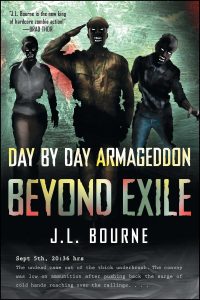 A very long time ago, I read an already out of print self-published book about
A very long time ago, I read an already out of print self-published book about 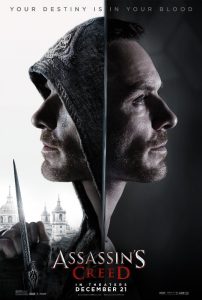 Assassin’s Creed
Assassin’s Creed I’m in a weird position here, in that I’ve never played an episodic game before. The chapters are not terribly long, but they’re long enough that the full game seems like it will turn out to be incredibly long, plus also I’m so bad at reviewing partial games anyway. Not to say I expect to stop playing Life Is Strange! But things happen sometimes, and the part where I opted to take a break between chapters is, if not telling, at least cautionary.
I’m in a weird position here, in that I’ve never played an episodic game before. The chapters are not terribly long, but they’re long enough that the full game seems like it will turn out to be incredibly long, plus also I’m so bad at reviewing partial games anyway. Not to say I expect to stop playing Life Is Strange! But things happen sometimes, and the part where I opted to take a break between chapters is, if not telling, at least cautionary.